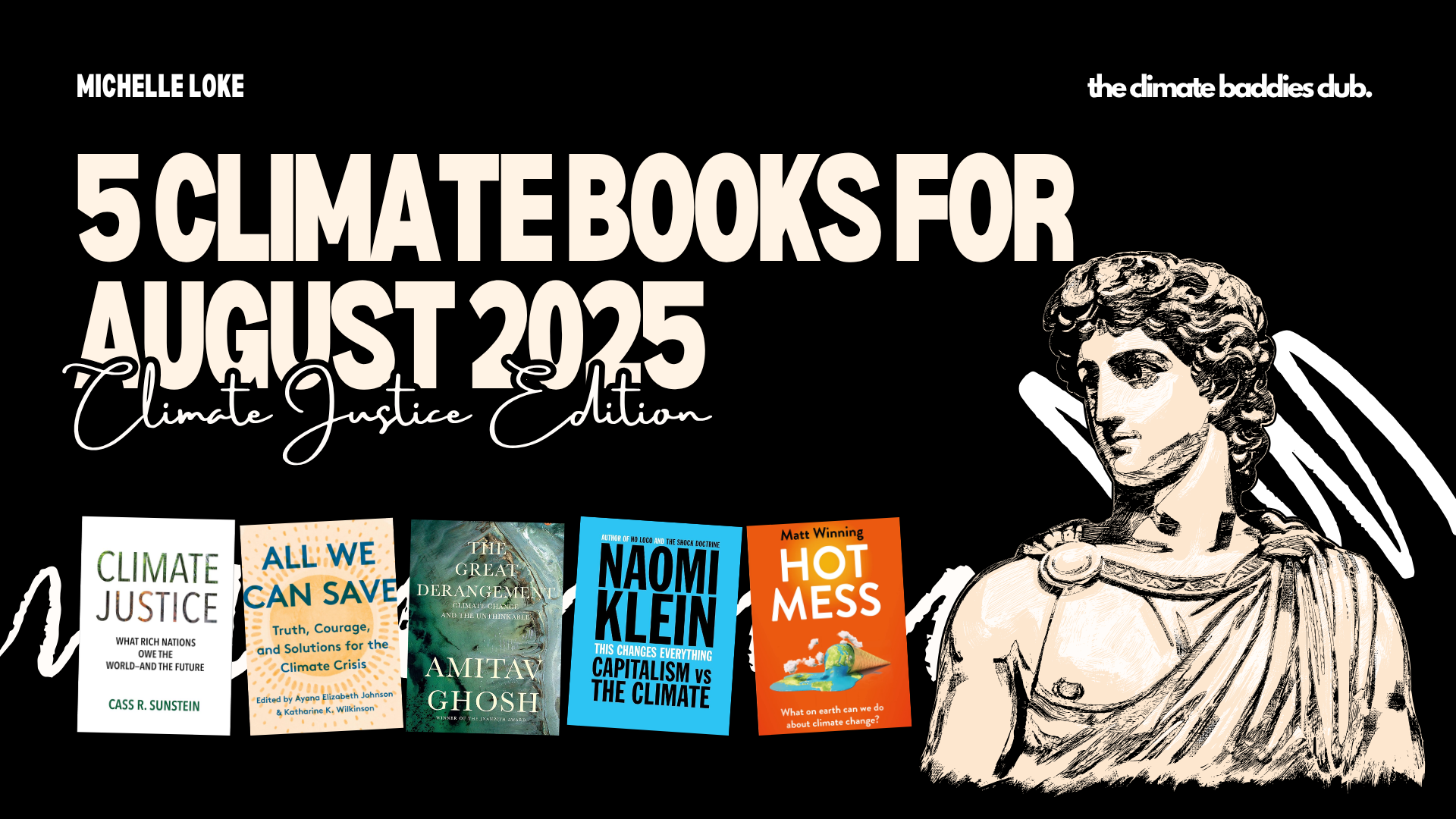I’ve always believed that the right book can change how you see the world... and maybe even change the world itself.
So when the International Court of Justice (ICJ), the highest court of the UN, dropped its landmark advisory opinion on July 23, 2025, saying nations can legally be held accountable for their greenhouse gas emissions, I knew exactly what this month’s reading list had to be about: Climate Justice.
Let’s pause here for a moment.
The ICJ's advisory opinion is historic. It isn’t legally binding, but it has enormous moral and political weight. It will influence how courts rule, how negotiations are framed, and how movements demand action. And when the world shifts like this, I want to understand the layers. Not just the legal ruling, but the decades of activism, storytelling, and theory behind it. The ethics. The human stakes. The economics. The laughter we use to keep going. And the deep, messy, powerful conversations about fairness, accountability, and who gets to have a future.
This list is part of a new thing I’m doing with The Climate Baddies Club (my slightly rebellious corner of the internet where culture meets carbon) - a monthly, themed reading list. The idea? To keep us smart, inspired, and yes… just a little bit dangerous in the best possible way.
This month’s stack is a mix of fiction, non-fiction, essays, and humour — because climate justice is not one-dimensional, and neither should your reading be. And full disclosure: I haven’t read all of these yet. This is as much my personal August reading plan as it is my recommendation to you.
So here’s 5 books I’ll be reading (and re-reading) and recommending you read this August 2025 - and why they’re worth your time too.
1. "Climate Justice: What Rich Nations Owe the World — and the Future" By Cass R. Sunstein
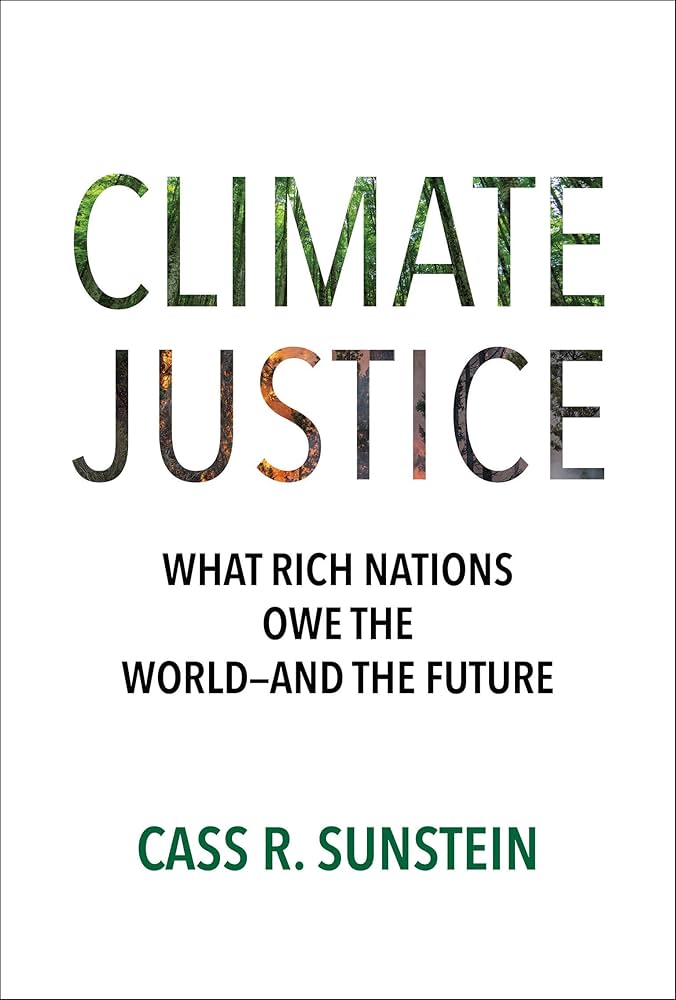
Summary:
Cass Sunstein takes what can feel like an abstract moral debate - “Who owes what to whom in the climate crisis?” - and turns it into something concrete. He draws on law, economics, and ethics to argue that wealthier nations, which have historically emitted the most, have a duty to help poorer nations adapt, mitigate, and recover. He explains concepts like the polluter pays principle, climate reparations, and intergenerational justice in a way that’s accessible without being simplistic.
Sunstein also explores the tricky questions: How do we measure responsibility? How do we balance present-day needs with obligations to future generations? What mechanisms actually work in practice?
Why it matters now: After the ICJ ruling, this isn’t just dinner-table theory - it’s the kind of reasoning that could underpin actual court cases, trade negotiations, and climate finance agreements. Reading it now means you’ll understand why the question of responsibility matters and how it can be addressed.
2. "All We Can Save" Edited By Ayana Elizabeth Johnson & Katharine K. Wilkinson
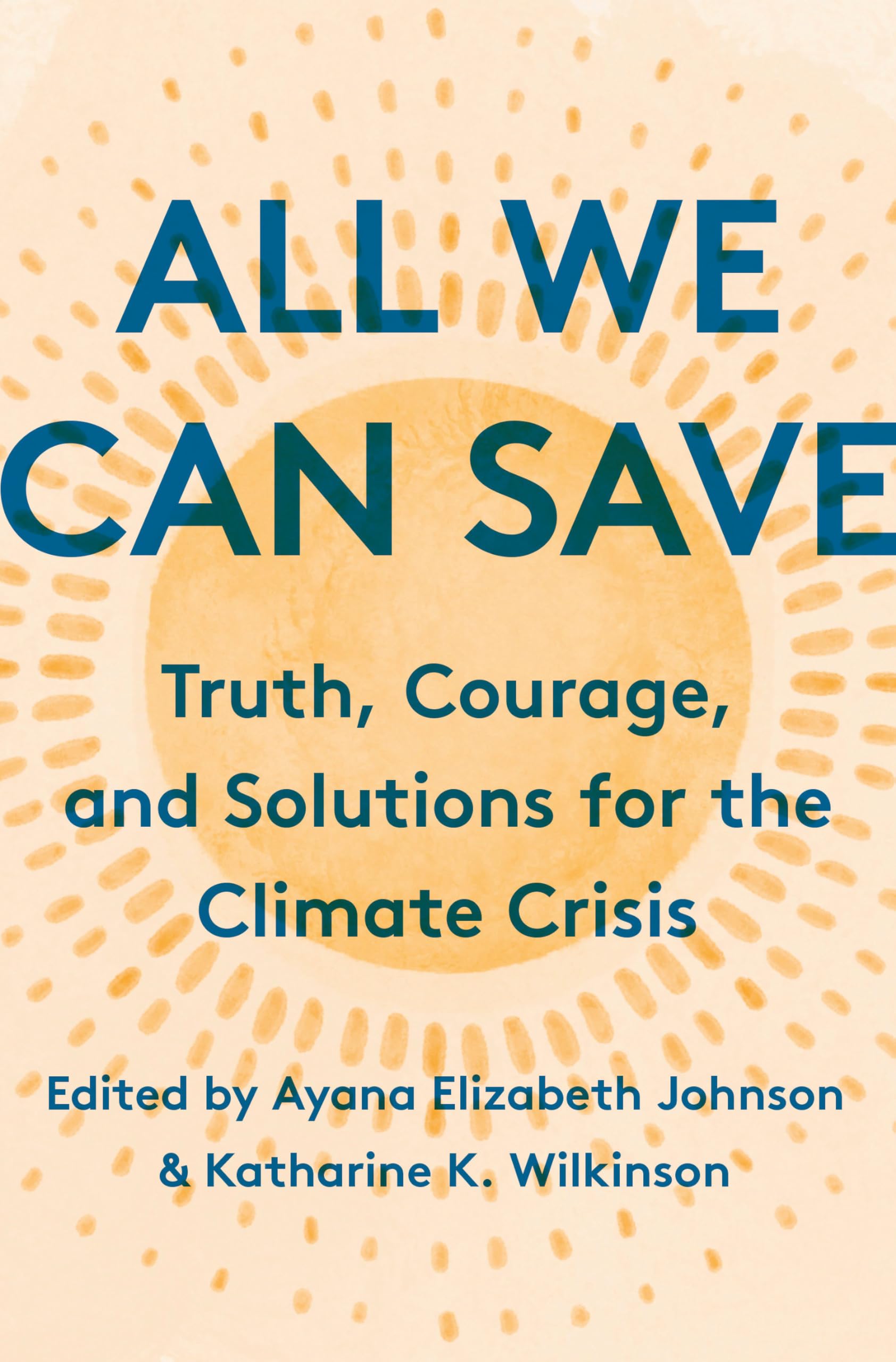
Summary:
Imagine sitting in a room with 60+ brilliant women from across the climate movement - scientists, artists, farmers, lawyers, poets, policy makers - and hearing them speak their truth. That’s All We Can Save. The anthology weaves together essays, poetry, and calls to action that cover everything from coral reef restoration to ecofeminism to building resilient communities in the face of rising seas.
There’s no single narrative voice here; instead, it’s a chorus. Some pieces are fiery manifestos. Others are deeply personal reflections. Collectively, they reject the idea that climate action is purely technical, they centre justice, emotion, creativity, and care.
Why it matters now:
The ICJ ruling is about top-down accountability. This book is about bottom-up power. It shows that climate justice is also about who gets heard, whose solutions get funded, and whose futures get protected.
3. "The Great Derangement: Climate Change and the Unthinkable" By Amitav Ghosh
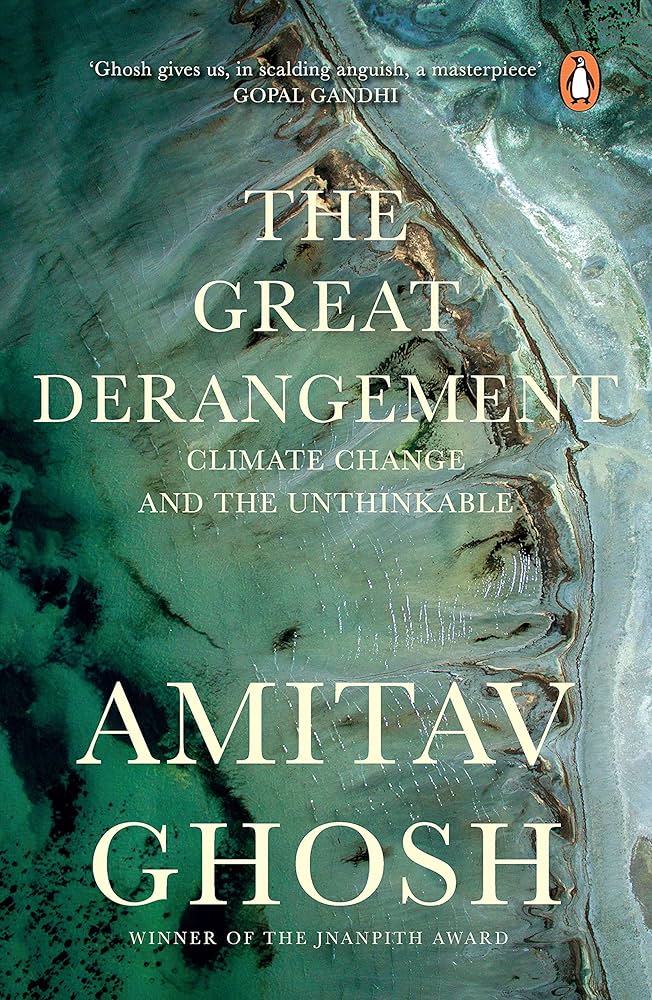
Summary:
Part literary criticism, part political history, part cultural lament, The Great Derangement is Ghosh’s exploration of why climate change is almost absent from modern literature and art, and why that’s dangerous. He links this cultural silence to colonial histories, fossil fuel capitalism, and the ways our imaginations have been shaped to avoid uncomfortable truths.
The book’s three sections: Stories, History, and Politics, take you from the failure of fiction to grapple with climate change, through the historical roots of the crisis, to the political realities of inaction. It’s dense but lyrical, with sentences that stay with you.
Why it matters now:
The ICJ ruling changes the legal story of climate change. Ghosh challenges us to change the cultural one to make climate part of our shared imagination so it can’t be ignored.
4. "This Changes Everything: Capitalism vs. the Climate" By Naomi Klein
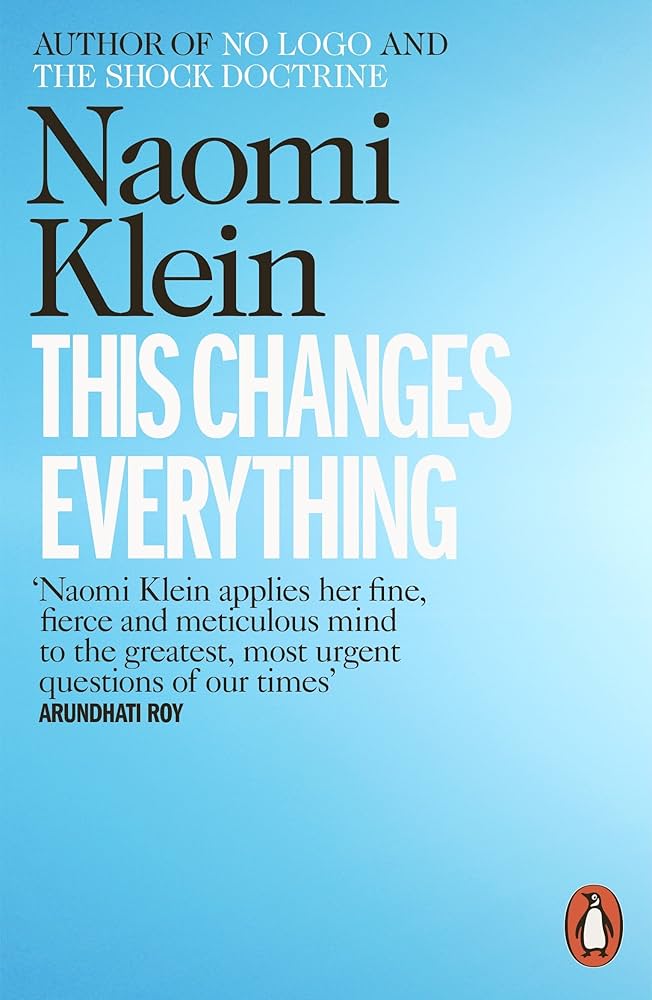
Summary:
Naomi Klein’s argument is bold: the climate crisis didn’t “just happen.” It’s the inevitable result of a global economic system based on infinite growth, extraction, and inequality. In This Changes Everything, she traces how neoliberal capitalism has blocked climate action, undermined democracy, and entrenched power in the hands of a few. But it’s also a hopeful book - one that shows grassroots movements around the world already building the kind of systems we need.
It’s a mix of investigative journalism, history, and manifesto. Klein interviews communities resisting pipelines, Indigenous nations reclaiming land, and activists reimagining the economy.
Why it matters now:
Legal accountability is important, but without systemic change, it’s just patchwork. The ICJ ruling is a crack in the wall; Klein’s work is a blueprint for knocking the whole thing down.
5. "Hot Mess: What on Earth Can We Do About Climate Change?" By Matt Winning
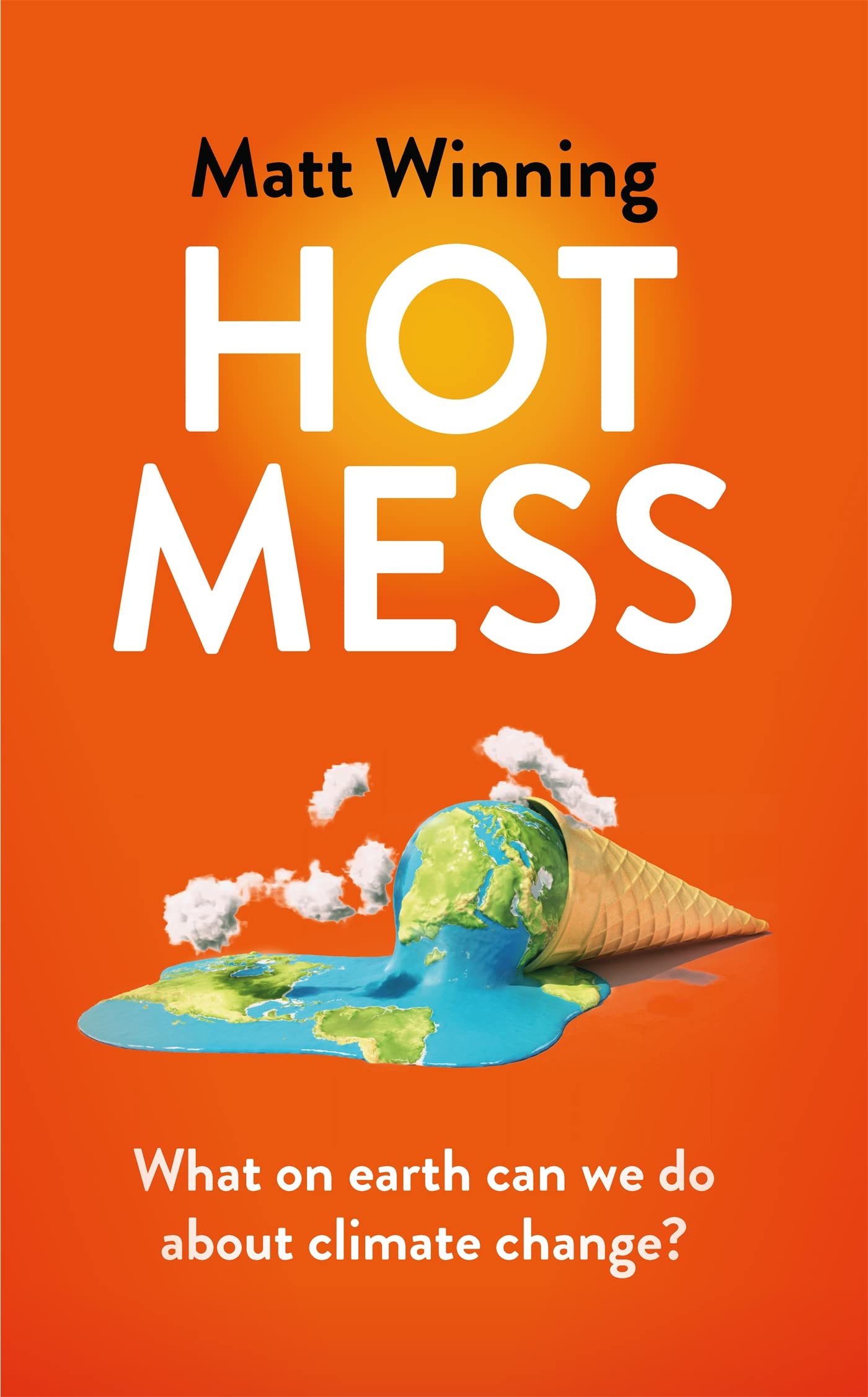
Summary:
Matt Winning is a rare species: a stand-up comedian who’s also a climate economist. Hot Mess combines his knack for sharp humour with clear, evidence-based explanations of climate science, politics, and personal action. The tone is playful — there are jokes, tangents, and even the occasional absurd scenario, but the facts are solid.
It’s especially good at showing how individual actions and systemic change interact and work together, without falling into guilt-tripping or greenwashing traps.
Why it matters now:
The climate justice conversation is often heavy and urgent. It can be... intense. Humour makes it more accessible, keeps people in the room, and can cut through defensiveness.
Where to Buy or Borrow These Books
You can find these titles at your local indie bookstore, library, or online! Support climate-conscious reading by buying from independent or sustainable booksellers, or borrowing instead of buying new ✌️
Your Turn, Let’s Read Together
I haven’t read all of these yet — but I’ll be diving into them throughout August. If you’re reading any of them too, I’d love to know:
- What’s resonating?
- What’s surprising you?
- What’s making you rethink climate justice?
Tag me on Instagram @swishbishmishh and share your thoughts with me!

